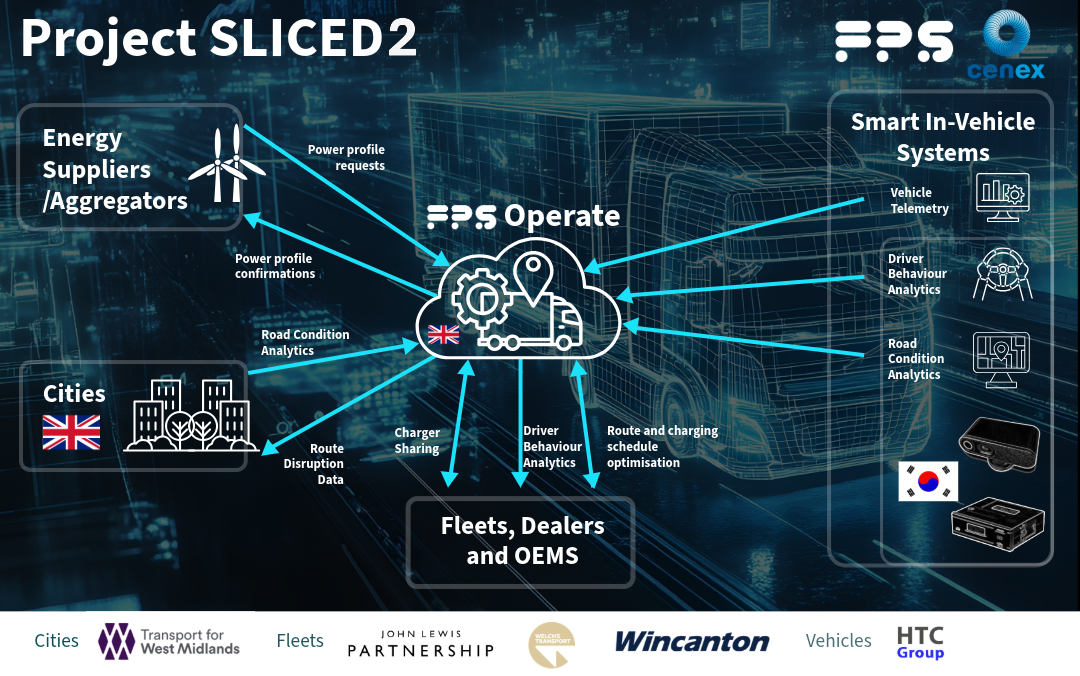
Project SLICED 2
Project
Project Overview
Project SLICED2 (Smarter Logistics through In-vehicle, City, and Energy Data), funded by Innovate UK, is a UK-South Korea collaborative demonstration. The project aims to demonstrate how integrating data from vehicles, smart cities, and energy grids can enhance the safety, sustainability, and efficiency of commercial fleets operating in urban areas. Building on the successful SLICED feasibility study, this next phase focuses on real-world demonstrations to validate the impact of connected data systems on fleet operations.
The Challenge
In the commercial fleet and logistics sector, technology is increasingly utilised to improve overall efficiency. Smart fleet management can encompass the optimisation of routes, monitoring vehicle conditions, predicting and ensuring timely maintenance, and analysing and improving driver behaviour and performance. However, fleets typically do not collect advanced data, such as indicators of driver impairment, nor do they monitor road conditions through in-vehicle sensors.
Cities also generate valuable data related to traffic conditions, public transport, air quality, events that may cause road disruptions, traffic light scheduling, loading bay occupancy, and more. Additionally, energy suppliers and aggregators have data on the electricity grid layout, heatmaps of grid loading, future grid reinforcement plans, and the potential for renewable energy capacity and installations.
Currently, the challenge is that fleets, cities, and energy suppliers do not collect and share as much data among each other as possible, hindering the realisation of safety, environmental, and efficiency benefits for all parties involved.
The Solution
The project’s goal is to integrate the data collected by all three stakeholders into a common platform that facilitates data sharing and optimisation of logistics operations in urban environments. This will be demonstrated in a real-world setting.
South Korean companies are focusing on developing in-vehicle smart-edge devices to capture data on driving behaviour, driver conditions, and road conditions.
FPS leads the project, deploying its Operate platform to integrate data on driver performance, road conditions, smart city and smart grid information, as well as offering charger booking functionality.
Cenex is responsible for stakeholder engagement with fleets and cities to ensure the demonstration occurs under the right conditions, with the relevant data collected. This includes creating a monitoring study plan and independently evaluating and reporting on the demonstration through a demonstration evaluation report. Additionally, a study will be conducted to explore the opportunities for smart grid development, understanding the potential flexibility that cities and logistics fleets can provide to the grid.
The Change
The main expected benefits of the project include improved safety, efficiency, and environmental performance for commercial fleets operating in urban environments. Safety will be enhanced through the detection of driver impairment and the monitoring of road conditions. Efficiency will improve due to better integration of in-vehicle data, smart city information, and smart grid data. Finally, environmental performance will increase as a result of heightened operational efficiency, better driving behaviours, smoother traffic flow, reduced idling time, and driving on well-maintained roads, among other factors.





